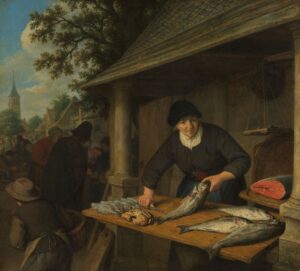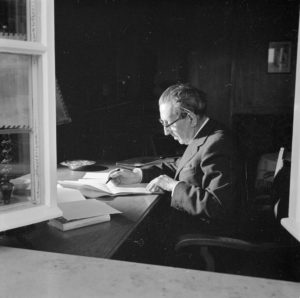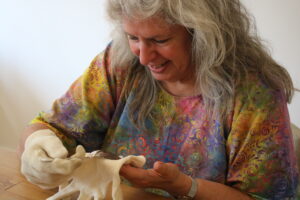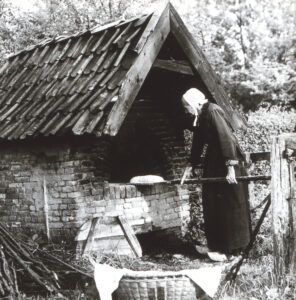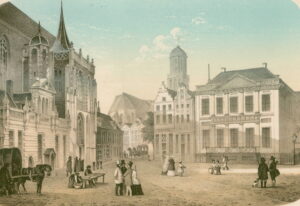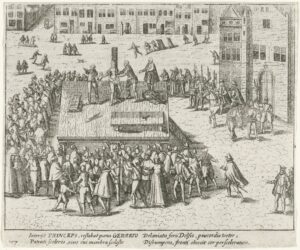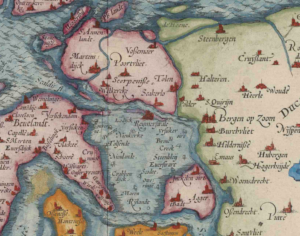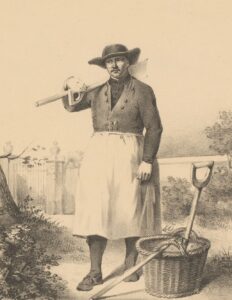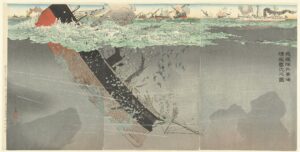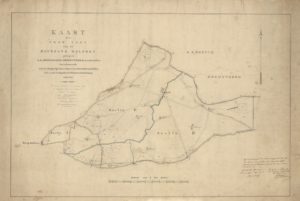In my Level-Up Challenge, I defined six levels of ancestral profiles. In this post, I will give you a basic research plan for an ancestor living in the 17th and 18th century for levels 1-4. Level 1: Names only I usually find the name of the person in records of somebody else I am researching. No specific research plan needed. Level 2: Vital statistics The civil registration was introduced in 1811 in most parts of the Netherlands (around 1795 for some parts of Limburg and Zeeland). Before … [Read more...]
Dutch term – Auteur
An auteur is an author. Before the introduction of modern copyright laws, publishers could sometimes obtain a patent, giving them exclusive rights to publish a book. You may find these patents in court records. The first real copyright law in the Netherlands dates from 1817. The current copyright law is the Auteurswet 1912. A work is protected by copyright for 70 years after the death of an author (counted from January 1st in the year after the death). Work that was published anonymously … [Read more...]
Quick tip – Friesland memorabilia
Hessel de Walle created a wonderful website with texts of graves in churches, mourning signs, stones with names, silverware, signet rings, etc in Friesland. In many cases, this includes a photo of the object. The website has the following search options: Gemeente: Municipality Plaats: Town Typen: Types. Achternaam: Last name Voornaam: First name Patronymicum: Patronymic Beroep: Occupation Foto: Photo Portretzerk: Grave portrait Latijn gebruikt: Latin … [Read more...]
Dutch term – Bakoven
A bakoven is a baking oven. People sometimes had a baking oven as a separate building, to prevent fire in the house. They are most commonly found in rural areas. You may come across the term in property records, such as notarial or court records. … [Read more...]
Dutch Genealogy News for July 2023
Here is an overview of the new sources, projects and other news announced last month. Sources The colonial records of Curacao, Bonaire and Aruba 1828-1845 have been digitized. Scans are available via the finding aid at the Nationaal Archief website. These records contain government, court, and notarial records and are crucial for researching ancestors who lived in the colony, encluding enslaved ancestors. Dutch documents from New Paltz in New York from the 1600s and early 1700s have … [Read more...]
Dutch term – Strafzaak
Strafzaak means "criminal case." You may see the plural, strafzaken, in the archival descriptions of court records. The finding aids often have separate series for criminal records. These may include the case files or verdicts. The severity of the crime determined where the case was tried. For each place where my ancestors lived, I try to find out which court had lower jurisdiction and which had higher jurisdiction. Major crimes, like murder, arson, or grand larceny, would be tried by … [Read more...]
Quick tip – Drowned Places
The Netherlands is located in the delta of several of Europe's major rivers, including the Rhine, the Scheldt, and the Meuse. Over time, more than a hundred villages and cities in the Netherlands were lost to water. In a few cases, catastrophic floods washed away a whole town, like during the St. Elisabeth Flood of 1421. In other cases, repeated smaller floods caused people to abandon a place. This happened in West-Vlieland and Reimerswaal, for example. It could also be that the townsfolk … [Read more...]
Dutch term – Gardenier
The word gardenier can have different meanings, depending on the location: In Friesland, it typically meant a small farmer, usually someone who grew crops like potatoes or other vegetables. In other places it typically meant gardener. Another Dutch word for gardener is tuinman. If you are unsure which is meant, check other records. If several neighbors were also gardeniers, chances are they were farmers. The same goes if the ancestor owned farm land, which you can find in cadastral, … [Read more...]
A Cautionary Tale about Works in Progress
Here's a cautionary tale for all of us have multiple unfinished projects underway. I was just going through correspondence with someone I worked with on New Netherland/colonial New York projects on occasion. He was a prolific author who had several articles published in peer-reviewed journals. At one point he shared a list of his works-in-progress with me, which included: 55 articles 5 books about New Netherland families, including a genealogical dictionary of early settlers of one … [Read more...]
Dutch term – Jachtrecht
Jachtrecht means the right to hunt. Until 1923, the right to hunt was a noble right. In many areas, the landlord was entitled to hunt across other people's lands. Well into the nineteenth century, you can see hunting rights being auctioned off to the highest bidder. Today, hunting is strictly regulated and mostly done as part of estate management. Hunters need a license that has several requirements, including permission from the owner of the land. … [Read more...]
